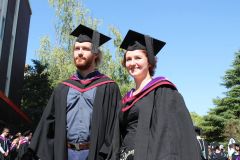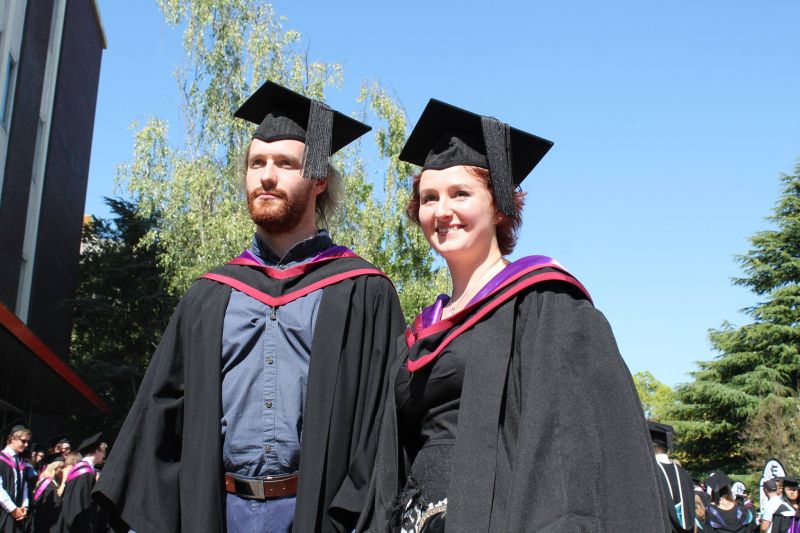Graduating as one of AMC’s very first Co-operative Program students – which meant interspersing her Ocean Engineering degree with three extended industry placements – hopes were high that Sigrid Wilson would be well prepared for the world of work.
She did not disappoint, quickly landing a position at the Australian Maritime Safety Authority (AMSA) – an organisation tasked with promoting maritime safety and protection of the marine environment.
It’s surely no coincidence that Sigrid had already spent seven months on work placement at AMSA during her degree. She used this time to make her mark by developing “from scratch” a new program that used web applications to make vessel standards more accessible.
Back at AMSA two years later, Sigrid is now a Senior Technical Adviser working in the Vessel Safety Unit – a team that provides technical expertise and support for all aspects of AMSA’s work with Australian vessels.
“My main responsibilities are assessing applications for exemptions and equivalent means of compliance (with the help of some very experienced engineers) and providing technical advice to surveyors and vessel owners.
“Vessel owners can achieve safety outcomes (like preventing collisions, fires, and man overboard situations) using either the solutions given in the relevant standards or alternative solutions that work for their operation. A big part of our work is looking at those proposed alternative solutions and determining if they are safe in the circumstances.”
It’s important work – keeping people safe at sea must be a rewarding way to start your career?
“I am lucky to work with a swag of very qualified and experienced people from all over the country. They teach me something hourly. There’s also something to be said for working for an organisation with noble goals – at the end of the day we’re here to make sure everyone comes home.”
Having extended her degree to five years to undertake her three work placements, was it worth it?
“Definitely. Although I use my maritime engineering ‘hard skills’, the most useful aspect of my education was the professional skills I gained through the Co-operative education program.
“During the five years I spent studying and working before graduation, I sometimes felt that I was going off course or waiting too late to choose a specific area of maritime engineering. I spent time in a design office, at a consulting firm, in public service and in research. In hindsight every moment was well spent.
“Co-op allowed me to spend a lot of time in a work environment and develop the professional maturity to be able to perform on day one as an employee.”
Does Sigrid have any advice for those who want to follow in her footsteps?
“Get as much as you can out of every opportunity and never take them for granted. If you can get access to an industry or company you’re not sure about, go for it – work experience or a thesis is a much smaller commitment than a full-time job after graduation, and you won’t have the same ability to sample different types of work for short periods later on.
“Also: proof-read everything, always photograph your lab work, stay hydrated, and call your parents.”
Published on: 29 Nov 2016

